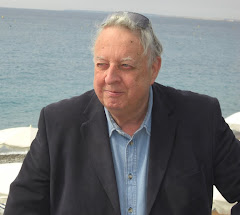Donald Vroon, writing
in the current issue of the American Record Guide sounds off
against a couple of violinists in Mozart concertos: “No one dares a
true Adagio. Why not? It strikes me as downright dumb to play music
according to rules instead of how you feel about it. What are
violinists for? Concertos are not written for metronomes”.
On the question of
tempos, I have vacillated like a weather vane over the years,
swinging backwards and forwards. The Bach Brandenburg concertos seem
to have become Formula One Brandenburgs, with every version trying to
clip minutes and seconds off the previous versions, and a pity about
the music. Tempos pre-1950 were usually slower than post- 1980, and
conductors and instrumentalists now dare not slow down the music for
fear of being accused of being boring. Fast is modern, and fast is
currently fashionable. Slow sees you criticised, fast sees you
praised (apart from by a few old codgers like Donald Vroon and me). I
disliked most of the rapid tempos in Riccardo Chailly's set of the
Beethoven symphonies – a set I have since given away. I love
Furtwängler's languid Pastoral symphony where he sounds like a true
country lover. Chailly sounded like a town boy who can't get out of
the countryside fast enough. John Eliot Gardiner usually sounds too
fast, to me but, there again, I am the only person to enjoy Otto
Klemperer's majestic and awe-inspiring opening Kyrie in Bach's Mass
in B minor. Much music cries out to be savoured, like a great
wine. Savouring needs time; no one should down a bottle of a
great wine in two minutes flat.
Music has tempo
markings, but no one knows exactly what molto moderato meant
to Schubert. One can expostulate what a given composer expected
to hear; but one can never be sure what the composer hoped to
hear, or would like to have heard. Bach may have expected to hear his
sonatas and partitas for solo violin played rhythmically and in tune
by a court violinist; but, given the option, would he have been more
delighted listening to them played by Jascha Heifetz? The original
composition is, of course, in the composer's head; the heavenly
choirs he imagines when writing might jibe harshly with the small
amateur choir he had to put up with for a hastily arranged
performance.
There are tempos that
are idiosyncratic; Benjamin Britten was driven to protest to
Sviatoslav Richter about his tempo in the opening movement – molto
moderato – of Schubert's last piano sonata. It is slow. Richter
obviously felt it should be slow, and I agree with Richter
(when it is played by him; the performer has to feel that that
is the right tempo). Performers should play with sincerity, how they
feel the music should go. I am reminded of Nathan Milstein's account
of playing Glazunov's violin concerto conducted by a somewhat
inebriated Glazunov. At a certain point, Glazunov stopped the
rehearsal and said to Milstein: “I marked that passage piano”,
to which Milstein says he replied: “I think it sounds better
forte”. After a pause, Glazunov replied: “You may be
right”.

No comments:
Post a Comment